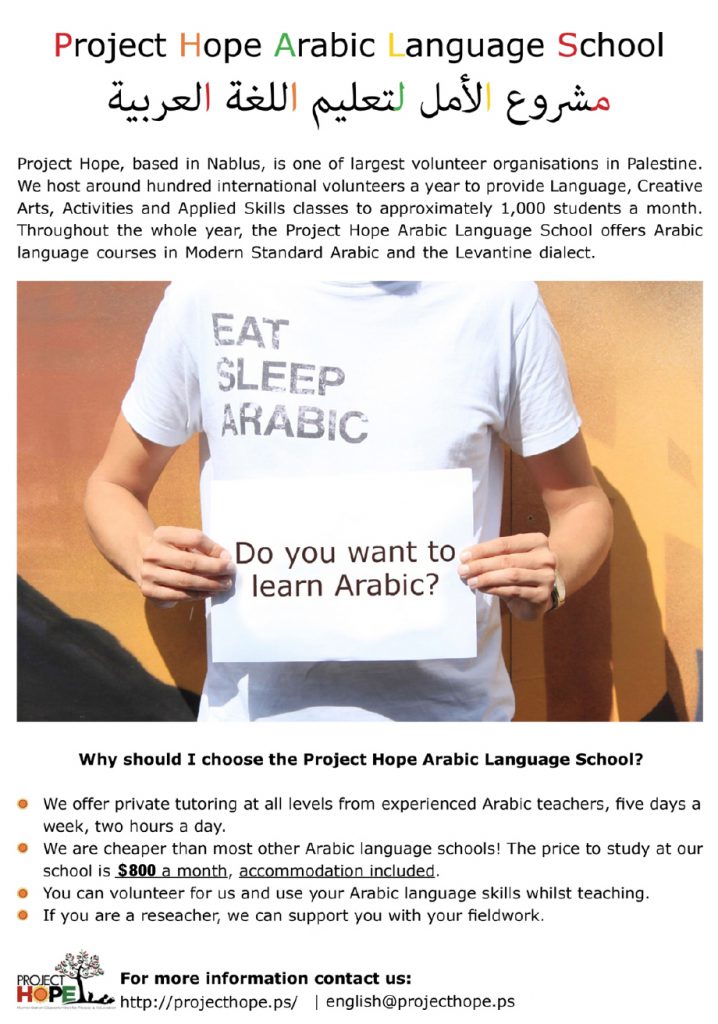Study Arabic In Palestine

Introduction
Students in the Arabic for non-native speakers come from diverse background. Some seek learning spoken Arabic language for religious reasons, while others maintain a cultural or academic interest in Arabic. Our program serves future scholars, teachers of Arabic, journalist, diplomats, employees in NGOs, and many others.
Course Title: Teaching Arabic for non-native speakers.
Executive Party: Project Hope Nablus, Palestine.
Why to study Arabic language in Palestine?
The following interests shall be achieved by obtaining good command of Arabic language:
1. Obtaining a vital language spoken by more than 400 million people and used by the united Nations as one of the major languages of the world.
2. Being familiar with a great culture, highly participated in human civilization.
3. Joining huge scientific, literal, artistic heritage of great values and traditions.
4. Offering various
Types of courses:
1. Beginners classes.
2. Intermediate classes.
3. Advanced classes.
Description of Arabic classes:
Beginners Level:
In this level students will learn basic Arabic language, the following subjects will be taught:
Arabic alphabet, greetings and farewell, time limits, days of the week, months of the year, subject and object pronouns, in the market(how to buy different things), in the kitchen, in the coffee shop, requesting for informations, masculine and feminine nouns, the weather, useful verbs, professions.
Intermediate Level:
For those who have already basic knowledge of Arabic but with little practice in spoken Arabic.
The course will enable students to communicate in Arabic on a basic level in order to deal to deal with everyday life situations like requesting and giving information, describing people, places and things, responding to offers describing past, daily and future events and activities, tenses.
Advanced Level:
The course introduces students to contemporary issues of Palestinian society and main social structures (the family, political system, economic systems, it will venture as well through folklore to learn about music and songs). The course will also explore other aspects like Palestinian traditions through folktales, proverbs, marriage and morning rituals and food.
Special focus will be on articles of journals, TV news and serials.
In teaching the different levels, the teachers use the communicative approaches, which include the use of multimedia with a focus on the variety of the language used throughout the Arabic speaking world, especially in print and electronical media. Further, the courses were designed to develop all skills i.e. listening, speaking, reading, writing, modern and classical culture. In addition to formal classes, the program offers weekly excursions and cultural activities around Nablus city where Arabic is used. Trips to the Old City of Nablus, recreation sites are an integral part of the program. Students participation in these curricular activities links the language acquired in class to the larger Palestinian and Arabic contexts.
For more information: english@projecthope.ps